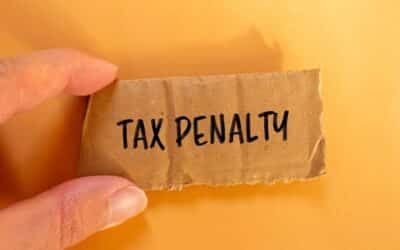Question: I am approaching age 70 ½ and wish to postpone distributions from my company’s 401(k) plan or, alternatively, minimize my required distributions. What, if anything, can I do?
Answer: Distributions of a participant’s qualified retirement plans and Individual Retirement Accounts must commence by the participant’s required beginning date. A participant’s required beginning date for a qualified retirement plan is April 1 of the later of the calendar year following (a) the calendar year in which the participant attains age70 ½ or (b) the calendar year in which the participant retires. For a participant in a qualified retirement plan who is a five percent owner and for all IRA participants, the required beginning date is determined without regard for the date of the participant’s actual retirement.
If you continue to work for your company and you are not a five percent owner, you can postpone the commencement of your plan distributions while you are still working. Generally speaking, a five percent owner is a person who holds five percent or more of the ownership interest or voting power in the corporation, partnership or other entity sponsoring the plan. Attribution rules apply which, for purposes of determining whether you are a five percent owner, require you to take into account interests of your spouse, children and other family members. If you can avoid five percent owner status, you can defer the commencement of your required minimum distributions if you continue working for your company.
If your company ownership interest prevents you from deferring your required minimum distributions, you should consider an investment known as a Qualified Longevity Annuity (“QLA”) which is an annuity that provides a guaranteed source of income when you reach a specified age. Assuming your 401(k) plan allows you to receive a distribution while still in the company’s employ, you can withdraw your 401(k) funds and roll the funds into an IRA without paying tax on the distribution and continue to hold the funds in a tax-deferred account. You can then use up to 25% but not more than $125,000 of your IRA funds to purchase a QLA. The primary purpose of this relatively new regulation is to allow retirees to protect against the risk of outliving their retirement assets. An ancillary benefit of the new rule is that the portion of your IRA account allocable to the QLA is not taken into account in determining your required minimum distributions thereby allowing you to take a reduced withdrawal from your account during the early years of retirement distributions.
You might also take a closer look at how your retirement and non-retirement accounts are invested. Once you are required to commence retirement account distributions, your tax-deferred account may decrease in value. If you have non-retirement investment accounts, you should consider using those funds for equity investments and invest your retirement accounts in whatever bond and other fixed-income investments you choose to maintain. The equity investments you hold in non-retirement investment accounts provide tax benefits in that both dividends and capital gains are taxed at a favorable 20% rate for federal tax purposes. No comparable favorable rates apply for fixed income investments so, while not necessarily reducing your required minimum distributions, you may yield a greater after-tax benefit from the restructuring of your investments since the assets more likely to increase in value are held in your personal investment accounts.
There is no magical strategy for managing your required minimum distributions. Proper planning can nevertheless help you reduce the tax consequences of distributions of retirement plan assets.
The Tax Corner addresses various tax, estate, asset protection and other business matters. Should you have any questions regarding the subject matter or if you have questions you want to be answered, you may contact Bruce at (312) 648-2300 or send an e-mail to [email protected].


